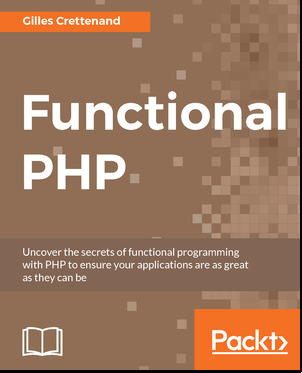The first part is brilliant. The explanations are clear, the examples very good and the learning curve almost perfect.
When getting into Monoids and Monads it becomes harder to follow, but still quite good.
The part about practical monads, especially Reader, Writer and Io monads, is disappointingly superficial, with barely any example and, as a result, very hard to understand.
I glanced over the Laravel/Symfony integration and completely ignored Wordpress/Drupal, and didn't go too deep into the testing part (it's mostly quite logical).
If it weren't for the monads chapters, it would have deserved 5 stars.

